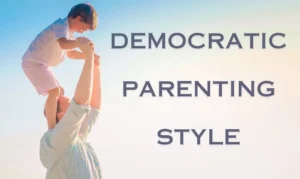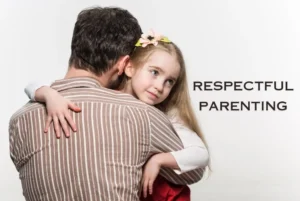Reactive parenting is basically a parenting approach that is characterized by emotional and aggressive reactions that parents use to correct their children’s behavior.
This reactive behavior can lead the parents to punish the kid emotionally or physically, which can lead to childhood trauma and a bad relationship between them.
Adopting reactive behavior in your relationship with your child is harmful because you should be flexible while setting boundaries and rules at the same time.
In this article, we will discuss the following:
Reactive parenting vs proactive parenting
One of the challenges that new parents face is avoiding any reactive behavior while dealing with kids and using a proactive approach instead.
Reactive parenting:
It is simple and comes naturally when a mom faces a meltdown or disrespect from her son.
This approach is driven by emotions and an immediate reaction to the child’s behavior without considering his needs or justifications.
In these situations, most moms yell, shame, spank, or punish with food.
Proactive behavior:
It is when a mom predicts her kid’s behavior before he does something wrong or when she predicts his attitude before they both go somewhere.
An experienced mother will not accompany her two-year-old son to an antique store because she knows that her son will break something.
A proactive parent will teach the kids what is allowed and what is not when they go to a public place.
This approach requires self-control, patience, and continuous communication with the kids so that they can have a healthy relationship with their parents.
What is an example of a reactive parent and a proactive one?
There are many examples we see every day in our lives, but today we will only mention two examples.
The first example:
When a young daughter has a new boyfriend
Reactive parents:
They would be furious and aggressive in their reaction to not letting their daughter have a boyfriend, especially the father, who would intimidate the boy.
These parents are afraid of the boyfriend’s character and behavior, or he does not meet their expectations, so they have an impulsive and emotional reaction.
Proactive parents:
They will understand and appreciate their daughter’s emotional needs, but they will also warn their daughter of common red flags she should notice in her boyfriend.
The second example:
When a son paints on a wall in the home
In reactive parenting:
Parents will rush to stop their son from painting on the wall by using force or shouting without considering the fact that their son is just a kid who plays and spends a good time alone.
Proactive parents:
They will control their emotions and understand that their child is just playing and does not intentionally mean to ruin the wall.
Later, these parents will hide the colors from their son and teach him the necessity of having a clean home with nice walls.
What causes a reactive parenting style?
There are several reasons for a parent to adopt this approach, and some of them are:
The parents were parented by reactive parents.
In over-reactive parenting, parents are more likely to misunderstand their kid’s motives when he misbehaves, and they think that they have a spoiled child.
Parents may develop this approach because they were raised by old-fashioned reactive parents.
These days, you can see this approach from tiger and authoritarian parents.
Social pressure from other parents.
New parents do not have enough experience to deal with their child’s tantrums or disrespect, so they ask their peers for advice.
If these peers are reactive, then parents will mostly develop the same reactive behavior with their children.
The child could be excessively annoying.
Some kids are stubborn and do not obey the rules, and when parents run out of patience, they will do anything to make the kids stop what they are doing.
Parents are being overprotective.
Nowadays, parents have more worries than ever and will do everything to protect their kids.
The rapid advancement of technology like social media and smartphones can lead kids to be under the negative influence of people with bad attitudes.
So, when kids want to access more freedom, reactive parents try to protect them from this freedom by any means.
Related: WHY FAMILY IS IMPORTANT?
Effects of reactive parenting on kids
There are many effects that could harm your relationship with your child, such as:
Children will be reactive when they have their own families.
There is a high chance that kids could repeat the same behavior with their own children in the future because they are used to reactive behavior.
Simply put, this effect will extend to the next generation of grandkids.
There is a high chance of getting a trauma or speech delay.
As kids suffer from reactive behavior, they may suffer from childhood traumas, anxiety, or depression.
When a toddler witnesses her parents treat her older sibling with reactive behavior, she might suffer from a speech delay.
Reactive parenting leads to distance and manipulation.
Some children could develop negative traits like telling lies because they fear their parents’ harsh punishments when they do bad things.
The child will be stubborn.
The child will resist reactive parenting when he gets older and will challenge his parents’ orders and rules.
He will also deliberately break the rules behind his parents’ backs just because he wants to do something forbidden by his parents.
Bad parent-child relationship.
Children of reactive parents will be able to see how nice their friends are treated by their own parents, which can lead to envy or jealousy.
How to stop being a reactive parent?
Realize the effects of reactive parenting.
The first step to avoid reactive behavior is to know the harmful effects that may last for a long time on children.
Reading about parenting and choosing the proper parenting style is a necessary step that parents should consider, even before having kids.
Think before you react.
When a kid does something wrong, the parents should calm down by taking deep breaths and thinking about happy memories and the good virtues of their kid.
Doing this while teaching the child about forbidden or wrong things will de-escalate the situation while maintaining a good relationship between all the family members.
Stop treating them as children.
Parents should teach their children good virtues like how to ask for something and how to disagree respectfully with someone.
This attitude in parenting will eliminate bad behavior and problems before they even occur.
Kids will always be kids.
It is OK if they do not obey the rules for the first time because it is their nature to be lazy and slow at doing chores.
Before you engage in any reactive behavior with them when they break the rules, remember in 10 years what matters more: the chores they did not do in time or your relationship with them.
Be serious and consistent.
Reminding the kids about the consequences of their bad behavior in case they break the rules will help them cope with the new system.
It is also the parent’s role to teach the kids about the allowed limits by disciplining them when they deliberately break the rules despite the warnings.





